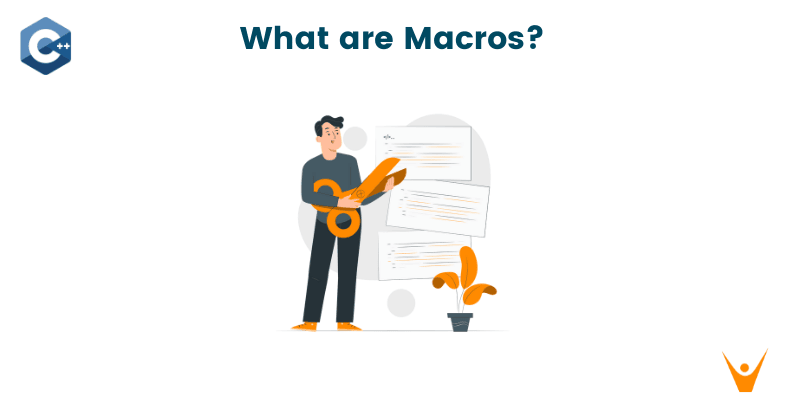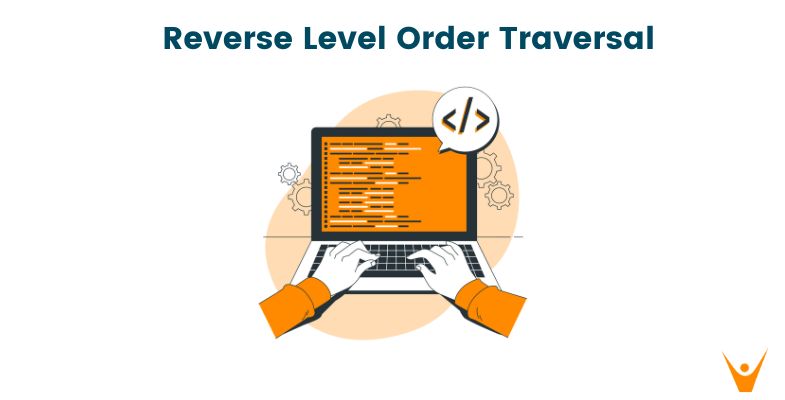Do you remember when we were made to write lines as kids? Didn’t we wish for something to shorten it or let us take a repetitive expression? Well, instead of typing it out every time, you can create a macro. It's kind of like creating a code word for a longer phrase. This can save you a lot of time. In this article, we will learn about C++ Macro with its benefits.
What is a C++ Macro?
A C++ macro is a preprocessor directive that allows you to define a symbolic name with replacement text. It is essentially a way to perform textual substitution in your code before it goes through the actual compilation process. This C++ feature is used to define reusable code snippets and constants.
Macros are defined using the #define directive and have the following general syntax:
#define MACRO_NAME replacement_text
When the preprocessor encounters the macro name in the code, it replaces it with the specified replacement text.
Is it Good to Use Macros?
The use of C++ Macros is hugely dependent on the particular use case and programming approach we will take. If used correctly, macros can provide significant benefits; however, they can cause confusion and problems if used improperly.
One valuable aspect of macros is their capacity to establish constants that can be utilized throughout your code. By doing this, the approach is more portable and less complicated to manage as there's no need for hard-coded values anymore.
For instance, a macro could be created for the pi value which could then be applied multiple times in different parts of the program without any concern about mathematical errors creeping in.
Also worth mentioning is another benefit provided by macros- they make it possible to streamline writing unique functions to apply them across many diverse sections within specific codes; thus sparing crucial time on rewriting similar content over again!
What are the Benefits of Macro?
Macros are a powerful tool that can be used in C++ programming to simplify code and make it easier to read and maintain.
- Code Simplification: One of the biggest advantages of using macros is that they can simplify code. For example, we can define the value of pi i.e. 3.14159 approximately to make the code simple and reduce the number of times we have to define the value of pi, making your code more readable and reducing the risk of errors.
- Customization: Macros can be used to tweak code according to your requirements. For example, you may create macros that enable or disable particular elements of your software based on certain situations. This can make your code more adaptive to varied conditions.
- Increased Efficiency: Macros can help you write more efficient code. For example, macros can be defined to do complicated calculations. One may avoid the burden of function calls this way, resulting in speedier and more efficient code.
- Cross-Platform Compatibility: Last but not least, macros can be employed to assure cross-platform compatibility. You can create a code that is easier to port and ensure that it operates properly on various operating systems and hardware combinations by providing macros for platform-specific code.
Should I Avoid Macros in C++?
If used carefully macros can be quite beneficial to use in the C++ programming language but in some situations, microns are more harmful than they do good.
If the use of Macros further complicates the code due to cryptic names or makes the code hard to read, you can avoid it. It is also advised to not name any macro in the same name as an already existing function because they make the code harder to debug or trace errors in the program.
There are also some new alternatives available. For example, in C++11 and later versions, constexpr functions can be used to define compile-time constants, which offer several advantages over macros.
Another disadvantage of macros is that they may result in code bloat. Because macros are preprocessed by the compiler, they can generate a lot of extra code, As a result, your code could get larger, slower, and more difficult to read and understand.
Types of macros in C++
Following are the main types of macros in C++ that you must know about.
1) Object-like Macros
Object-like macros are the simplest type of macros. They are used to define constants or to replace certain values in your code. They are defined using the #define directive followed by the name of the macro and the value that it represents. Here's an example:
#define PI 3.14159
Here we have defined one macro, PI representing the value of pi (approximately 3.14159). You can then use these macros in your code like this:
float radius = 5.0; float circumference = 2 * PI * radius;
2) Function-like Macros
Function-like macros are more complicated than object-like macros. They are used to define custom functions that can be called anywhere within your code. They are defined by following the #define directive with the name of the macro, a set of parenthesis, and a set of instructions to be performed. Here's an example:
#define SQUARE(x) ((x) * (x)) int num = 5; int square_num = SQUARE(num);
3) Conditional Macros
They are defined by employing the directives #if, #ifdef, and #ifndef, followed by a series of conditions to be tested. Here's an example:
#include <iostream> #define DEBUG int main() { #ifdef DEBUG std::cout << "Debugging information: " << std::endl; std::cout << "Variable x = 10" << std::endl; #endif int x = 10; std::cout << "Value of x = " << x << std::endl; return 0; }
we define a conditional macro DEBUG at the beginning of the program. Then, we use an #ifdef preprocessor directive to conditionally compile the code inside the #ifdef block only if DEBUG is defined
Output:
Debugging information: Variable x = 10 Value of x = 10
If we were to comment out or remove the #define DEBUG line, the code inside the #ifdef block would not be compiled or executed.
The quote "too much of anything is bad" is quite fitting for macros, they are quite helpful but too many can make the code more faulty and slower. Hence whenever using macros make sure to wisely and best fitted to the code.
Conclusion
In conclusion, when used correctly, macros can provide significant benefits, such as simplifying code and improving efficiency. They also allow customization, enabling you to adapt your code based on specific requirements or conditions.








